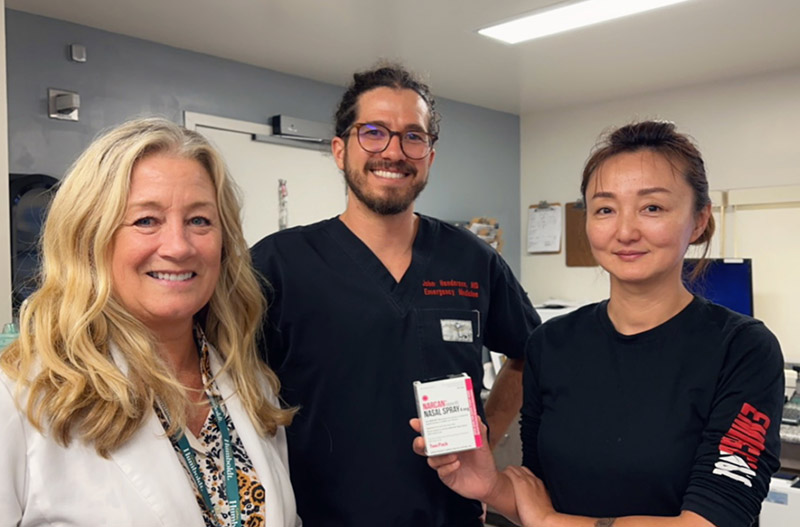Memorial Hospital of Gardena is participating in an important Naloxone Distribution Project as part of the statewide CA Bridge program.
Part of the California Department of Health Care Services, CA Bridge is working with hospital emergency departments to provide immediate access to medication for addiction treatment. Hospital EDs are considered underutilized resources in the fight against the crisis of drug overdoses.
Pipeline Health’s Gardena hospital recently received 2,100 units of Naloxone in the form of nasal spray as part of this program.
“These units are to distribute to patients who arrive in our emergency department at high risk of opioid overdose, which is a critical new service for our community,” said Chief Nursing Officer Traci Siler.
“Additionally, the ED offers buprenorphine and assistance with treatment program placement. By incorporating these drugs into our ED services, we can provide a critical point of access to care for individuals with opioid use disorder and stabilize their condition.”
Over the last six months, Memorial Hospital of Gardena has provided treatment referrals for 77 patients. Since receiving the Naloxone last month, the drug has been dispensed to three patients.
Naloxone (brand name Narcan) is used to temporarily reverse the effects of an opioid overdose, namely slowed or stopped breathing. Such opioids include OxyContin, fentanyl, methadone and Vicodin, as well as heroin and other street drugs. Naloxene works by blocking the effects of opiates on the brain and by restoring breathing.
According to the California Department of Public Health, opioid-involved drug overdose deaths increased statewide by nearly 2.5 times between 2015 and 2021. The age distribution of deaths has shifted toward much younger age groups, with the highest rate among people age 30-34.
Increases in mortality have disproportionately affected Black and native American Californians, who now have the highest opioid overdose death rates of any racial or ethnic groups.
“Additionally, substance use disorders commonly lead to hospital readmissions, which diminish patient outcomes and increase hospital expenses, further stressing hospitals,” Siler said. “Effective interventions to treat substance use from the ED, such as staffing substance use navigators and implementing Naloxone distribution, are critical to saving lives and functional health systems.”
9.20.2023

